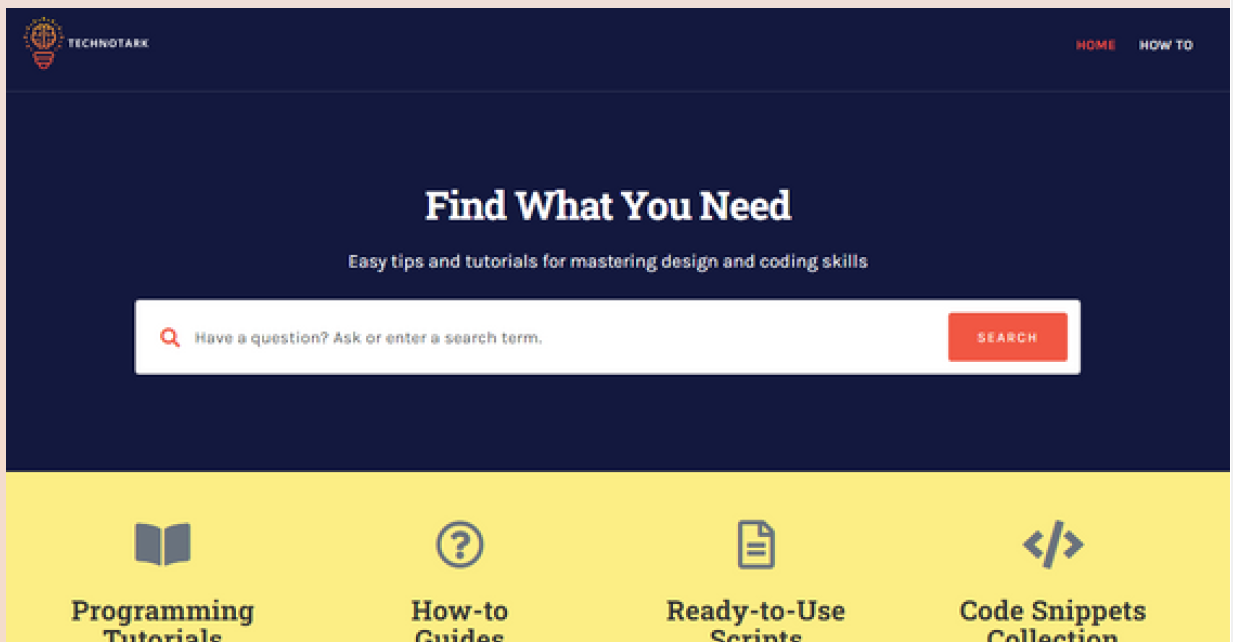Modern Web Design Technologies for Business Websites
In today’s digital-first world, choosing the right web design technology is crucial for any business. Different platforms and technologies offer unique benefits based on the type and goals of the website, whether it's an informational site, an e-commerce platform, or a custom web application. Below, we’ll explore some of the most popular web design technologies and their ideal use cases.
1. WordPress: The Go-To for Informational and Blogging Websites
Overview: WordPress is one of the most widely-used content management systems (CMS), powering over 40% of websites globally. It’s known for its user-friendly interface and versatility.
Best For: Businesses looking for an informational or static website, or a blog, will find WordPress ideal. It offers thousands of plugins and themes, making it easy to customize without deep technical knowledge.
Advantages:
- Ease of Use: Business owners can add content without coding skills.
- SEO-Friendly: Optimized for search engines with plugins like Yoast SEO.
- Scalability: From a simple blog to a complex website, WordPress can handle various types of sites.
2. Shopify: Perfect for E-commerce Websites
Overview: Shopify is an all-in-one platform designed specifically for e-commerce, providing businesses with tools to sell products online.
Best For: E-commerce businesses of all sizes. With Shopify, entrepreneurs can quickly set up a fully functional online store without needing web development expertise.
Advantages:
- User-Friendly: Easy to set up and manage, even for beginners.
- Built-In Payment Processing: Shopify Payments and integration with other payment gateways make transactions seamless.
- Marketing Tools: SEO, email marketing, and abandoned cart recovery are built in.
3. Wix and Squarespace: For Small Business Websites and Portfolios
Overview: Wix and Squarespace are popular website builders that provide drag-and-drop design capabilities.
Best For: Small businesses, freelancers, and creatives who need a portfolio or personal website. These platforms are perfect for visually appealing, straightforward websites.
Advantages:
- Drag-and-Drop Simplicity: No coding required, making it easy to design.
- Integrated Hosting: Hosting is included, so users don’t have to manage a separate hosting service.
- Modern Templates: A wide range of pre-built templates helps create a professional look.
4. Joomla and Drupal: Advanced CMS Options for Complex Websites
Overview: Joomla and Drupal are more powerful CMS options that offer greater flexibility but require a bit more technical expertise.
Best For: Medium to large businesses that need complex, data-heavy websites or specific content structures (e.g., community portals or social networking sites).
Advantages:
- High Customizability: Ideal for developers who need custom features.
- Enhanced Security: Known for their robust security features, which is essential for large enterprises.
- Scalable and Flexible: Can support extensive content libraries, making it suitable for complex, dynamic sites.
5. Custom HTML, CSS, and JavaScript: Tailored Solutions for Unique Websites
Overview: For businesses with specific requirements, custom-built websites using HTML, CSS, and JavaScript offer total control over functionality and design.
Best For: Companies needing a unique or highly interactive website, such as web applications or specialized business platforms. Custom coding allows for features that may not be possible with standard CMS options.
Advantages:
- Full Customization: Every aspect of the site can be tailored to meet the brand’s unique requirements.
- Greater Flexibility: Developers have full control over the design and functionality.
- High Performance: Custom sites are often optimized for speed and performance.
6. React and Angular: Modern Frameworks for Web Applications
Overview: React (by Facebook) and Angular (by Google) are JavaScript frameworks designed for building interactive single-page applications (SPAs).
Best For: Dynamic web applications where speed, user engagement, and responsiveness are key, such as dashboards, social media platforms, and real-time collaboration tools.
Advantages:
- Highly Interactive: Enables dynamic content without reloading the page.
- Reusable Components: Speeds up development and ensures consistent design.
- Strong Community Support: Both have large developer communities, making resources and updates readily available.
Conclusion
Choosing the right web design technology is essential to creating a website that meets your business's needs and goals. For simpler websites, platforms like WordPress or Wix offer ease and efficiency. For e-commerce, Shopify provides a full suite of selling tools. For complex needs, custom development or advanced frameworks like React and Angular may be the best path.
Evaluating your business’s objectives, audience, and budget can help you select the best technology for a website that supports growth and offers a seamless user experience.





























